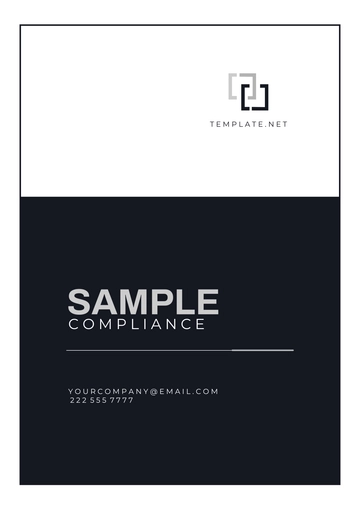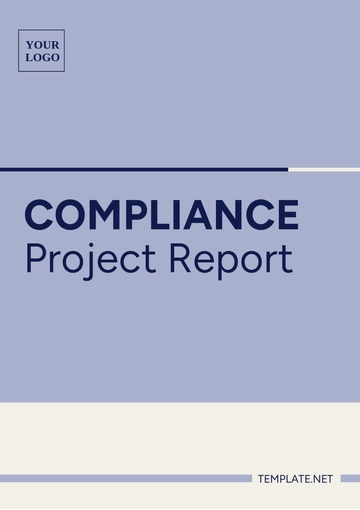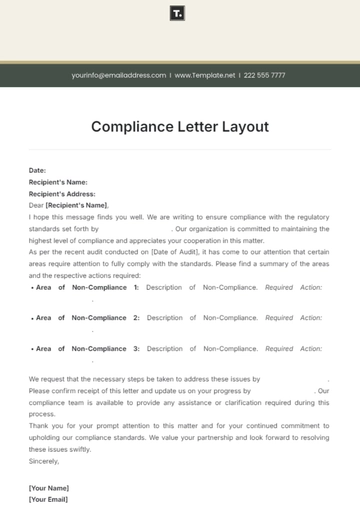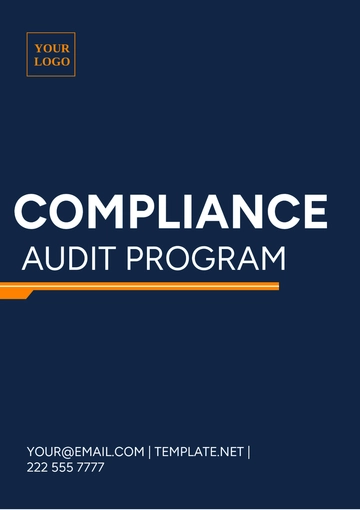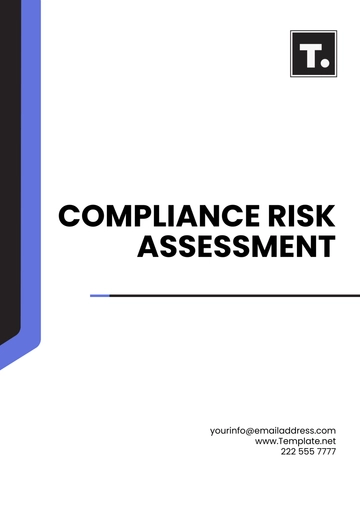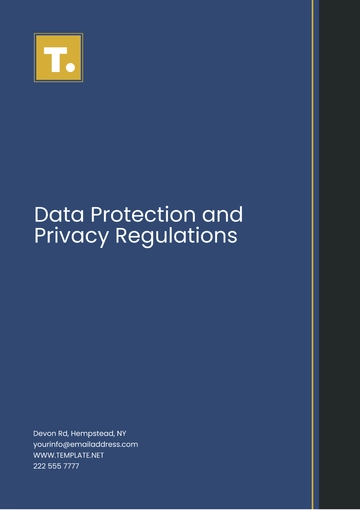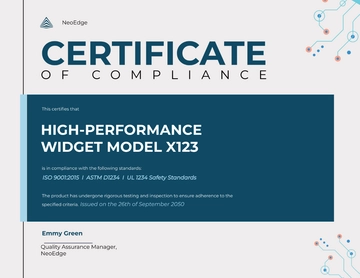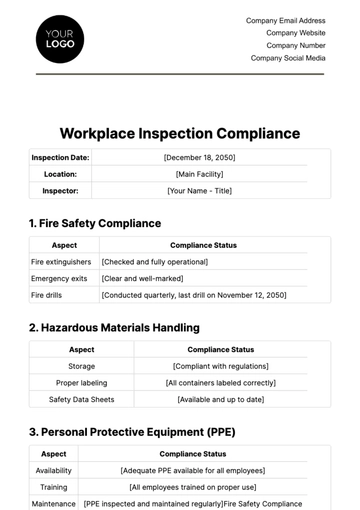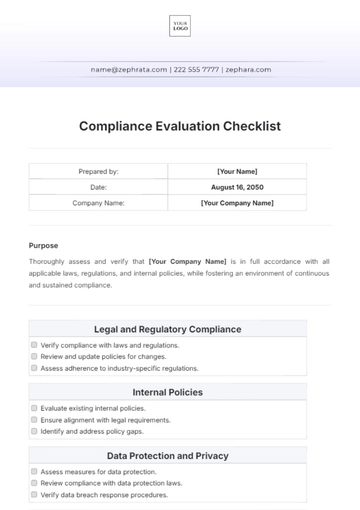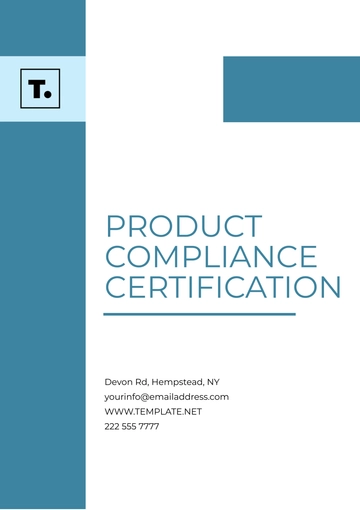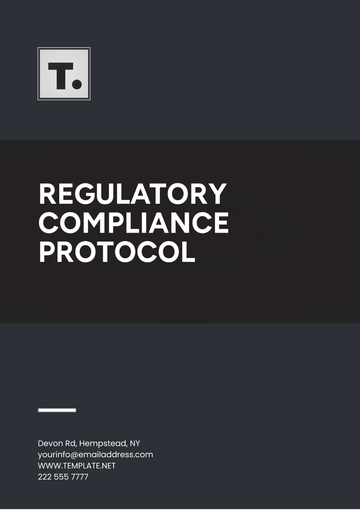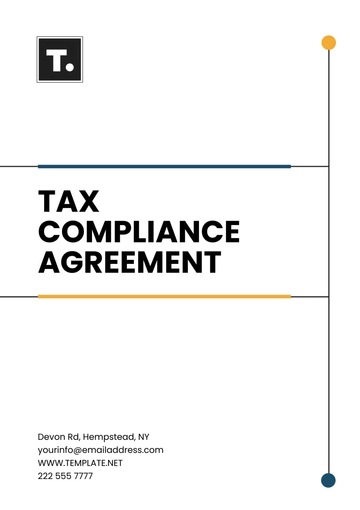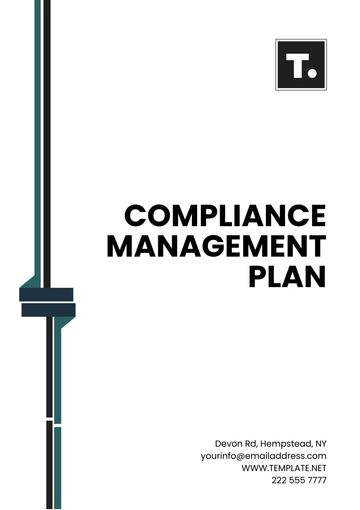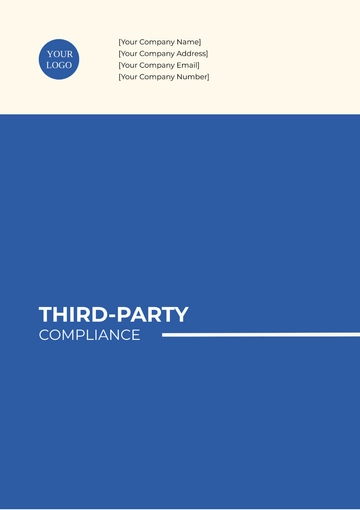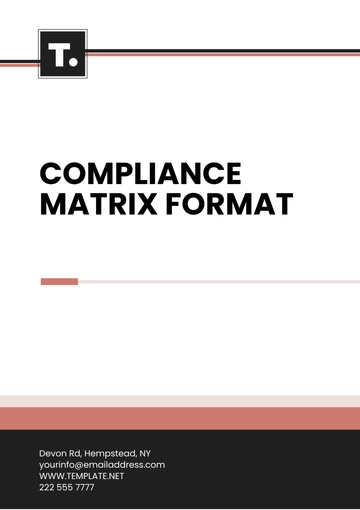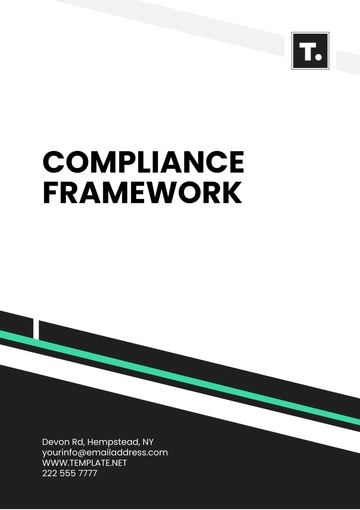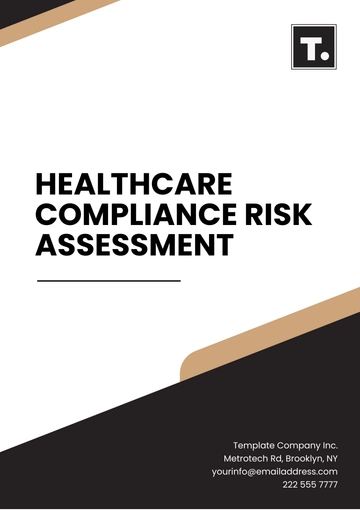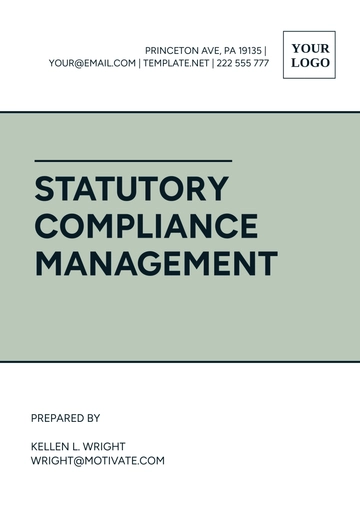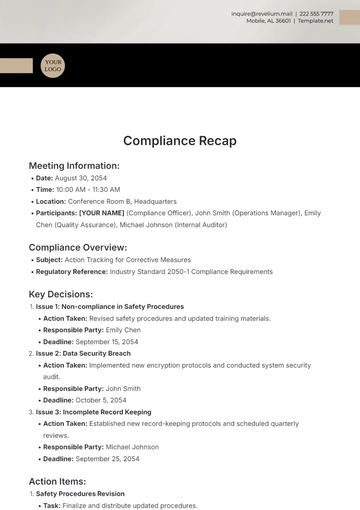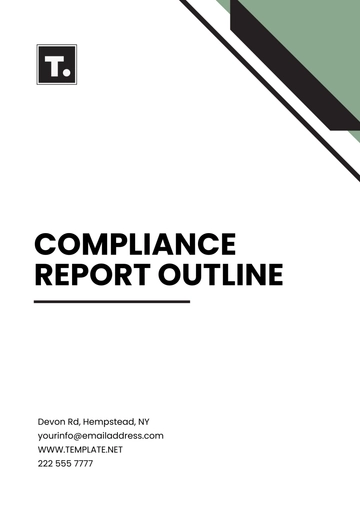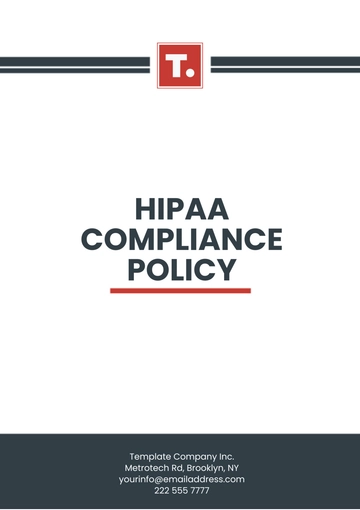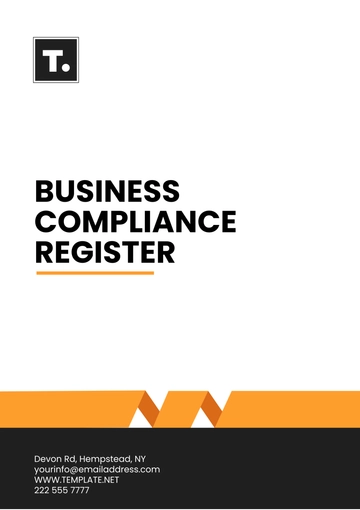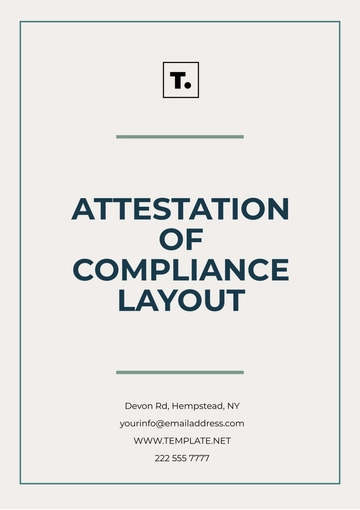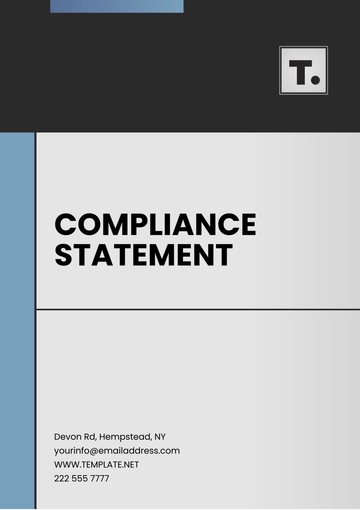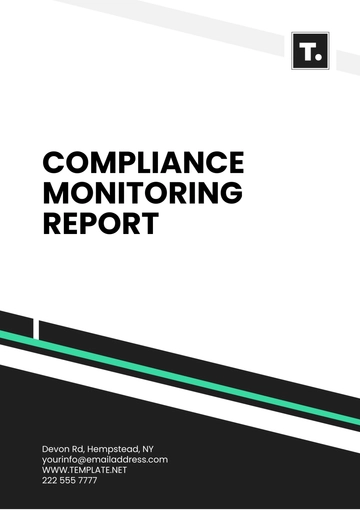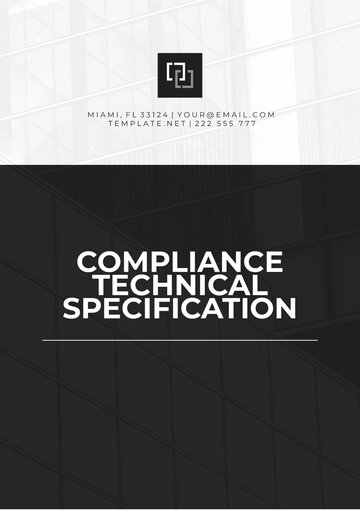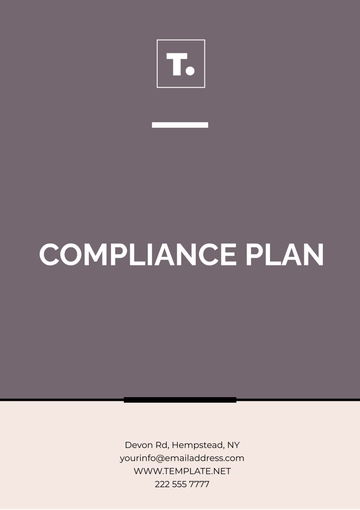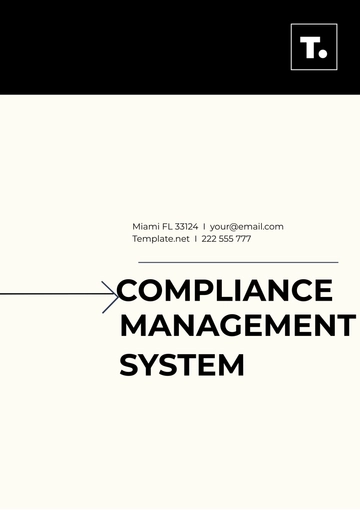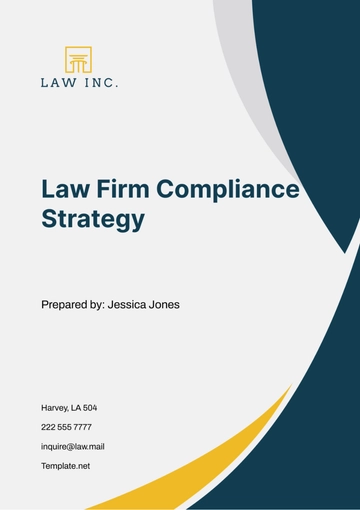Free Marketing Global Market Compliance Document
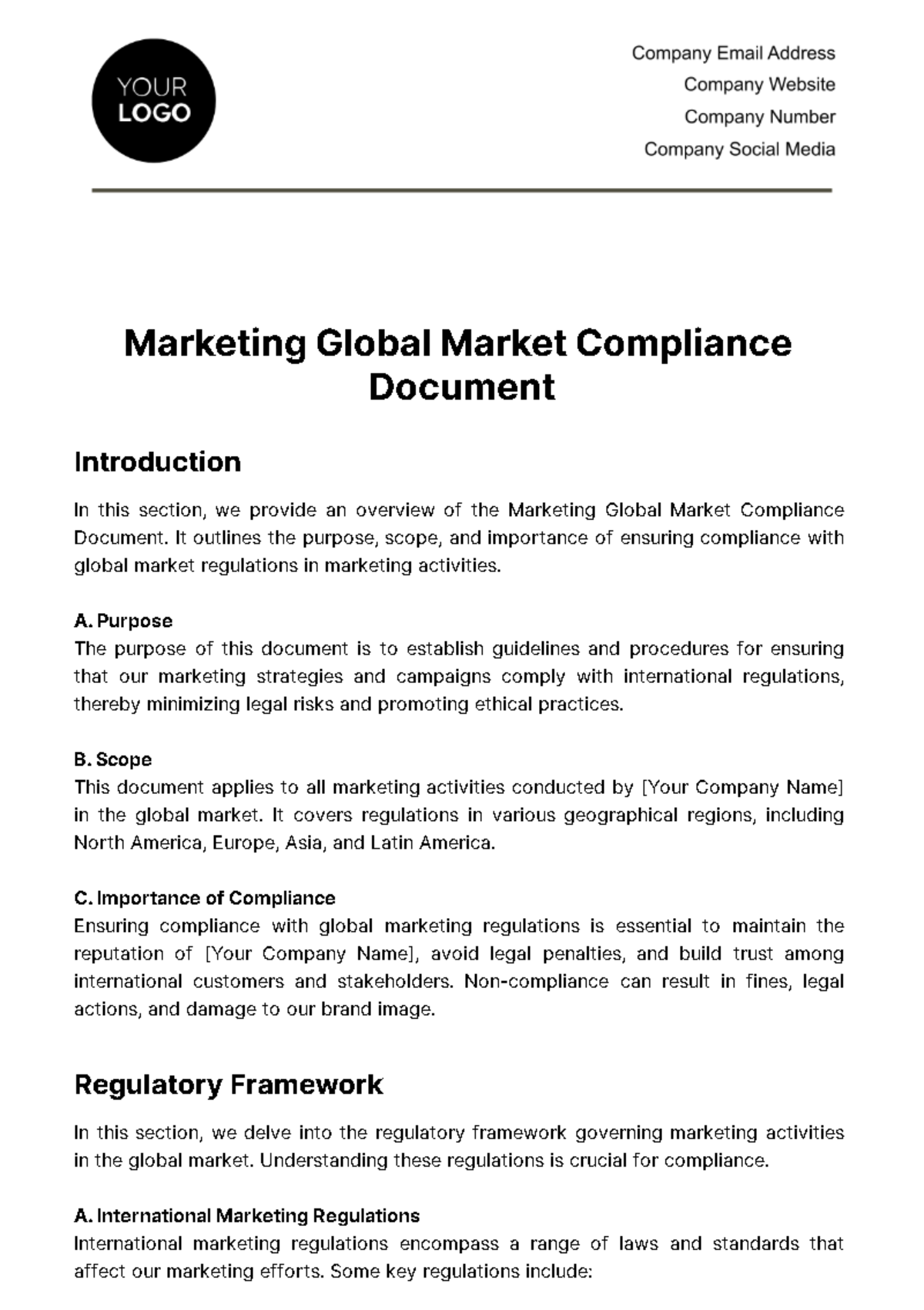
Introduction
In this section, we provide an overview of the Marketing Global Market Compliance Document. It outlines the purpose, scope, and importance of ensuring compliance with global market regulations in marketing activities.
A. Purpose
The purpose of this document is to establish guidelines and procedures for ensuring that our marketing strategies and campaigns comply with international regulations, thereby minimizing legal risks and promoting ethical practices.
B. Scope
This document applies to all marketing activities conducted by [Your Company Name] in the global market. It covers regulations in various geographical regions, including North America, Europe, Asia, and Latin America.
C. Importance of Compliance
Ensuring compliance with global marketing regulations is essential to maintain the reputation of [Your Company Name], avoid legal penalties, and build trust among international customers and stakeholders. Non-compliance can result in fines, legal actions, and damage to our brand image.
Regulatory Framework
In this section, we delve into the regulatory framework governing marketing activities in the global market. Understanding these regulations is crucial for compliance.
A. International Marketing Regulations
International marketing regulations encompass a range of laws and standards that affect our marketing efforts. Some key regulations include:
Regulation | Description |
General Data Protection Regulation (GDPR) | This EU regulation governs the collection and processing of personal data. We must obtain explicit consent from individuals before collecting their data and ensure its secure handling. |
CAN-SPAM Act | The CAN-SPAM Act sets guidelines for sending commercial email messages. It requires us to include accurate sender information, provide an opt-out mechanism, and honor opt-out requests promptly. |
Local Advertising Laws: | Different countries have specific advertising laws that may restrict certain types of content or advertising methods. We must review and adhere to these laws when running campaigns in specific regions. |
B. Regional Specifics
Marketing regulations can vary significantly from region to region. Here are some region-specific considerations:
Region | Compliance Regulation |
Europe | The EU's ePrivacy Directive complements GDPR, focusing on privacy in electronic communications. Adherence to cookie consent and tracking regulations is essential. |
Asia | Many Asian countries have stringent data protection laws, such as Japan's Act on the Protection of Personal Information (APPI). Understanding these laws is crucial for marketing in this region. |
North America | The United States has the Telephone Consumer Protection Act (TCPA), which regulates telemarketing practices, including sending SMS marketing messages. |
Compliance Strategy
This section outlines our company's strategy for ensuring compliance with global marketing regulations.
A. Compliance Team
The Compliance Team at [Your Company Name] is responsible for overseeing and implementing compliance measures. The team includes:
[Your Name], [Your Position]
[Compliance Team Member 1], Compliance Manager
[Compliance Team Member 2], Legal Counsel
B. Training and Awareness
We prioritize the education and awareness of our marketing team regarding global regulations and ethical practices. This includes regular training sessions, workshops, and distributing compliance guidelines.
Compliance Monitoring
To maintain compliance, continuous monitoring is crucial. This section explains our monitoring procedures.
A. Auditing and Reporting
Our compliance team conducts regular audits of marketing campaigns, data handling practices, and advertising content. Audits are performed quarterly, and findings are reported to the management and relevant departments. Any compliance issues identified are addressed promptly.
Risk Mitigation
In this section, we delve into strategies to mitigate risks associated with non-compliance with global marketing regulations. It's crucial to proactively identify potential risks and implement measures to reduce their impact.
A. Risk Assessment
Our risk assessment process involves a thorough examination of potential compliance risks associated with our marketing activities. This includes:
Data Privacy Risk: We assess how we collect, store, and process personal data, ensuring compliance with GDPR and other data protection regulations. Our procedures include obtaining explicit consent, maintaining data security, and providing individuals with the right to access and delete their data.
Advertising Content Risk: We review our advertising content to ensure it complies with regional advertising laws. This includes scrutinizing claims, images, and messages to avoid misleading or offensive content.
Consent and Opt-Out Risk: In accordance with the CAN-SPAM Act and similar regulations, we closely monitor our email marketing practices. We guarantee accurate sender information, provide clear opt-out mechanisms, and promptly honor opt-out requests.
Regional Variations Risk: Marketing regulations vary across regions. To mitigate this risk, we maintain region-specific compliance guides and work closely with legal counsel in different geographies to ensure adherence.
B. Mitigation Strategies
Based on our risk assessment, we've developed the following mitigation strategies:
Regular Compliance Audits: As outlined in Section 4, we conduct regular compliance audits to identify and rectify any non-compliance issues promptly. This proactive approach helps prevent potential risks from escalating.
Continuous Employee Training: Our commitment to employee education (Section 3.2) ensures that our marketing team remains up-to-date with evolving regulations. This ongoing training reduces the likelihood of inadvertent compliance violations.
Legal Counsel Collaboration: We collaborate closely with legal counsel specialized in international marketing regulations. Their expertise aids in navigating complex regional laws and ensuring our campaigns align with local requirements.
Documentation and Records: Maintaining comprehensive records of our compliance efforts, including consent records, audit reports, and legal correspondence, allows us to demonstrate our commitment to compliance and aids in addressing any regulatory inquiries.
For any questions, concerns, or reports related to compliance with global marketing regulations, please contact:
[Your Name]
Email: [Your Email]
Phone: [Your Company Number]
- 100% Customizable, free editor
- Access 1 Million+ Templates, photo’s & graphics
- Download or share as a template
- Click and replace photos, graphics, text, backgrounds
- Resize, crop, AI write & more
- Access advanced editor
Ensure compliance with global market regulations using our Marketing Global Market Compliance Document Template, available exclusively on Template.net. This editable resource offers a structured framework for aligning marketing strategies with international standards. Utilize our AI Editor Tool for seamless customization tailored to your organization's needs. Navigate global markets mitigate compliance risks effectively with comprehensive documentation.
